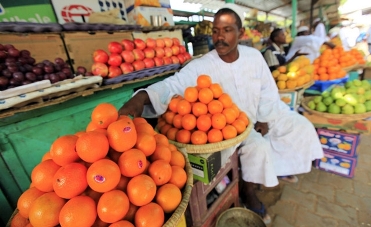Sudan government unable to manage economy says ex-finance minister
December 6, 2012 (KHARTOUM) – The Sudanese government is no longer able to manage the economy and lacks solutions to handle the crisis, a former finance minister said today.

Speaking at the Islamic Fiqh Council, Hamdi pointed out that 77% of revenues goes to cover salaries and wages as well as federal aid to states.
The former minister commented on the 2013 budget calling the projections included in it a “charity” underscoring that it requires a “major surgery” to provide sufficient revenues.
He called for discussions on the allocations made in the budget for defense and security as opposed to giving attention to other pressing items in other sectors.
“There needs to be spending to achieve public balance,” Hamdi said and stressed that the dues to the poor population and other sectors should be given precedence over security spending.
The Sudanese government tabled its draft 2013 budget before parliament this week which projects 25.2 billion Sudanese pounds (SDG) in revenues and 35.0 billion SDG in expenses leaving a deficit of 10 billion SDG ($1.5 billion) which equals 3.4% of the country’s Gross Domestic Product (GDP).
The deficit will be financed up to 87% (7.6 billion SDG) from domestic sources including 2 billion SDG from the central bank.
The budget allocates 555 million SDG for health and education sectors, 8.6 billion SDG for security, 6.0 million SDG for agriculture and 1.5 billion SDG for what is known as “sovereign sectors” which includes presidency, council of ministers, foreign ministry, justice ministry, defense ministry and federal affairs ministry.
Hamdi said that the economic situation could be classified as “stagflation” as the state applies austerity measures demanding a reconsideration of the way the governments manages financial policies.
Sudan entered a phase of economic crisis last year as a result of the secession of the oil-rich South Sudan. The government is now trying to expand oil exploration efforts and boost gold exports to make up for the loss of the oil.
But officials in Khartoum insist that in order to balance the budget subsidies on food and fuel need to be completely lifted. Last summer the government partially lifted subsidies drawing rare but small protests.
The government also devalued the currency which came under intense pressure over the last year due to continuous shortages in dollars and inability of the central bank to provide the market with the needed hard currency.
The country is also subject to comprehensive U.S. financial and economic sanctions and is unable to borrow from international monetary institutions or rich western nations due to arrears and its hefty external debt. Oil-rich Arab Gulf nations have been reluctant to adequately assist Sudan despite Khartoum dispatching delegations over the last year.
(ST)
